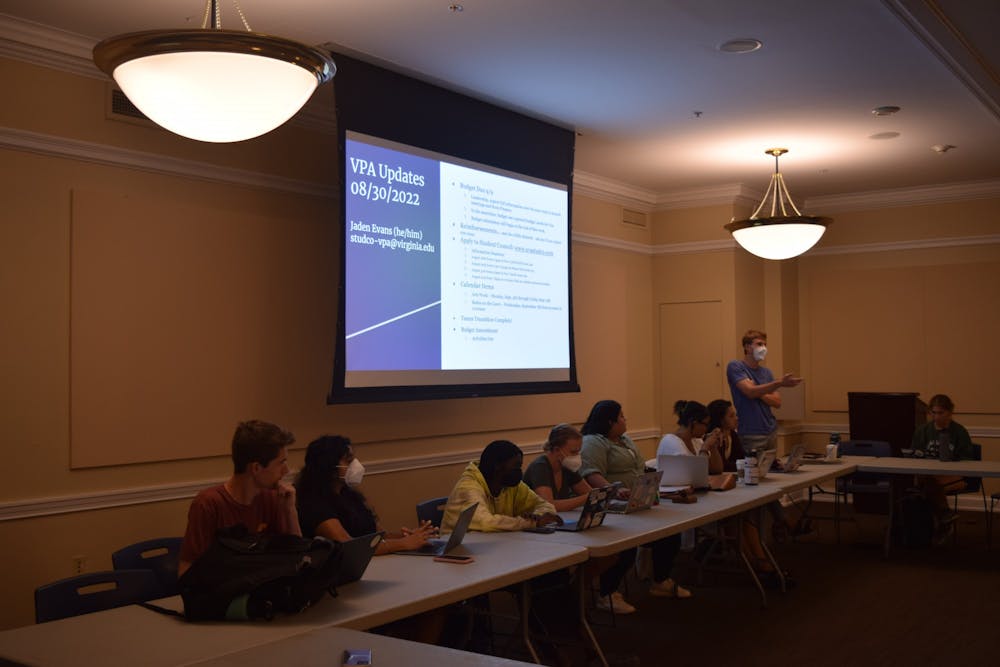Student Council plans to modify its Student Activities Fee guidelines to make the funding process easier for both students and Student Council. This involves removing some repetitive or unnecessary clauses, changing language to clarify meaning and testing contracted independent organizations’ knowledge of critical funding rules.
The current SAF guidelines were last updated last January. The student activities fee is the $50 fee all students are required to pay yearly through tuition and is used to fund a variety of programs at the University through Student Council allocations.
The fee is designed to provide financial support to student organizations that fall within one of thirteen eligible categories established by the Board of Visitors.
The current administration hopes to clarify the SAF guidelines and resolve funding issues — such as confusion about how to obtain funds or the need to constantly update the guidelines due to changing circumstances.
Riley Reynolds, vice president of organizations and fourth-year College student, is taking the lead on this initiative. Her first step was the introduction of FB22-03 at the group’s general body meeting last Tuesday, a bill that aims to update the current SAF guidelines.
Reynolds said the system is not going to be completely overhauled, but rather tweaked for the sake of streamlining.
For example, the legislation consolidates several clauses in the “Procedural and Steps of Process” clauses to provide a more general overview of the funding process with the intention of putting more specific information on the Student Council website. This change will make it easier to make slight adjustments to the process on the website, rather than constantly updating the legislation.
Reynolds hopes the legislation will create a streamlined process for all parties involved, and make it easier for members of Student Council to understand and administer funding requests.
“On our end, it will simplify how much we can fund and how we are going about funding,” Reynolds said. “It'll make it easier for new members of the committee to get trained and to know how to fund and to process requests, and it'll also be easier on the CIO side for new treasurers and new execs among CIOs to know what they can request and how their requests will be filtered.”
One element of the legislation is the implementation of a quiz to test a CIO’s understanding of the way the funding process works in a quiz taken once a semester.
“Student Council reserves the right to make funding eligibility contingent upon the completion of a SAF Guidelines quiz,” the legislation reads. “The quiz will be created and issued by the Appropriations Committee, and it will briefly test CIOs on what the committee deems to be the most basic and important rules outlined in the SAF Guidelines with the intended purpose of educating CIOs on these rules.”
Reynolds remains optimistic about changes to the SAF guidelines.
“I envision us being able to hopefully fund more and fund faster,” Reynolds said.





